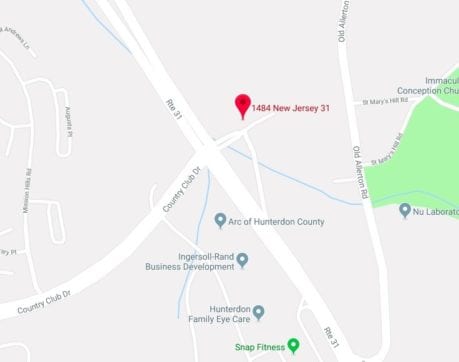Sleep Apnea Treatment
Alleviate Symptoms of Sleep Apnea with a Custom Mouth Guard
Sleep apnea is a dangerous disorder in which a person experiences interrupted breathing during sleep, resulting in oxygen deprivation. If left untreated, this condition can lead to serious medical problems such as stroke, high blood pressure, or heart attacks. At Walnut Pond Dental in Annandale, NJ, Drs. Victoria Uryniak and Carson Ferris-Zeolla fabricate custom dental appliances that can help position the soft tissues more favorably, effectively alleviating the accompanying symptoms of sleep apnea.
We file medical insurance and accept Medicare for sleep apnea treatment!
What is Sleep Apnea?
Obstructive sleep apnea occurs when there is a blockage of the airway. The throat muscles and surrounding tissues become relaxed, and subsequently collapse during sleep. The resulting lack of oxygen can wreak havoc on the body. Because sleep apnea happens during the sleep cycle, many patients do not even realize they are suffering from it. Many people wake up with chronic fatigue and headaches, and do not understand why.
Risk Factors for Sleep Apnea
People of any age can experience sleep apnea. However, there are a few risk factors that can increase your chances of developing it. You are at a higher risk of acquiring sleep apnea if you:
- Are over the age of 40
- Are overweight
- Are male
- Have a genetic predisposition to sleep apnea
- Suffer from gastroesophageal reflux (GERD)
- Have nasal obstruction due to sinus issues, allergies, or a deviated septum
- Have a larger than average neck size
- Have enlarged tonsils or an enlarged tongue
Symptoms of Sleep Apnea
Sleep disorders can manifest in various ways, exhibiting a number of signs and symptoms. These may include:
- Headaches
- Insomnia
- Fatigue
- Restless sleep
- Forgetfulness
- Mood changes
- Sore or dry throat upon waking
- Gasping upon waking
- Extreme snoring
Sleep Apnea Treatments
In some mild cases, sleep apnea may be alleviated by certain lifestyle changes. For example, some patients find relief by:
- Losing Weight: Obesity can put excess pressure on the tissues surrounding the airway.
- Changing Sleeping Postures: Most patients find that altering their sleeping position can be helpful. Typically, you should avoid sleeping on your back.
- Avoiding Alcohol and Sedatives: Certain substances like sleeping pills or alcoholic beverages can relax the muscles too much, resulting in an obstructed airway. If you do drink alcohol, it is a good idea to avoid it a few hours before bedtime.
- Avoiding Tobacco Use: Smoking triggers swelling in the upper airway. This can exacerbate sleep apnea and snoring.
Receiving Your Custom Appliance
During an initial consultation, our doctors will evaluate the airway and surrounding structures. If it is determined that your sleep apnea is being triggered or exacerbated by the soft tissues, we will discuss the option of a custom night guard. These special oral appliances can gently keep the airway open during sleep, increasing the oxygen flow to your brain and body.
To fabricate a custom appliance, we will take impressions of your teeth and send them to our trusted dental lab. A skilled technician will carefully craft the appliance fit the contours of your mouth comfortably. This process typically takes about one to two weeks. Once the appliance arrives to our office, we will schedule you for an appointment to try it in. Most patients need a couple of nights to get used to their new appliance. However, custom appliances have helped thousands of patients overcome sleep apnea and improve their quality of life.



